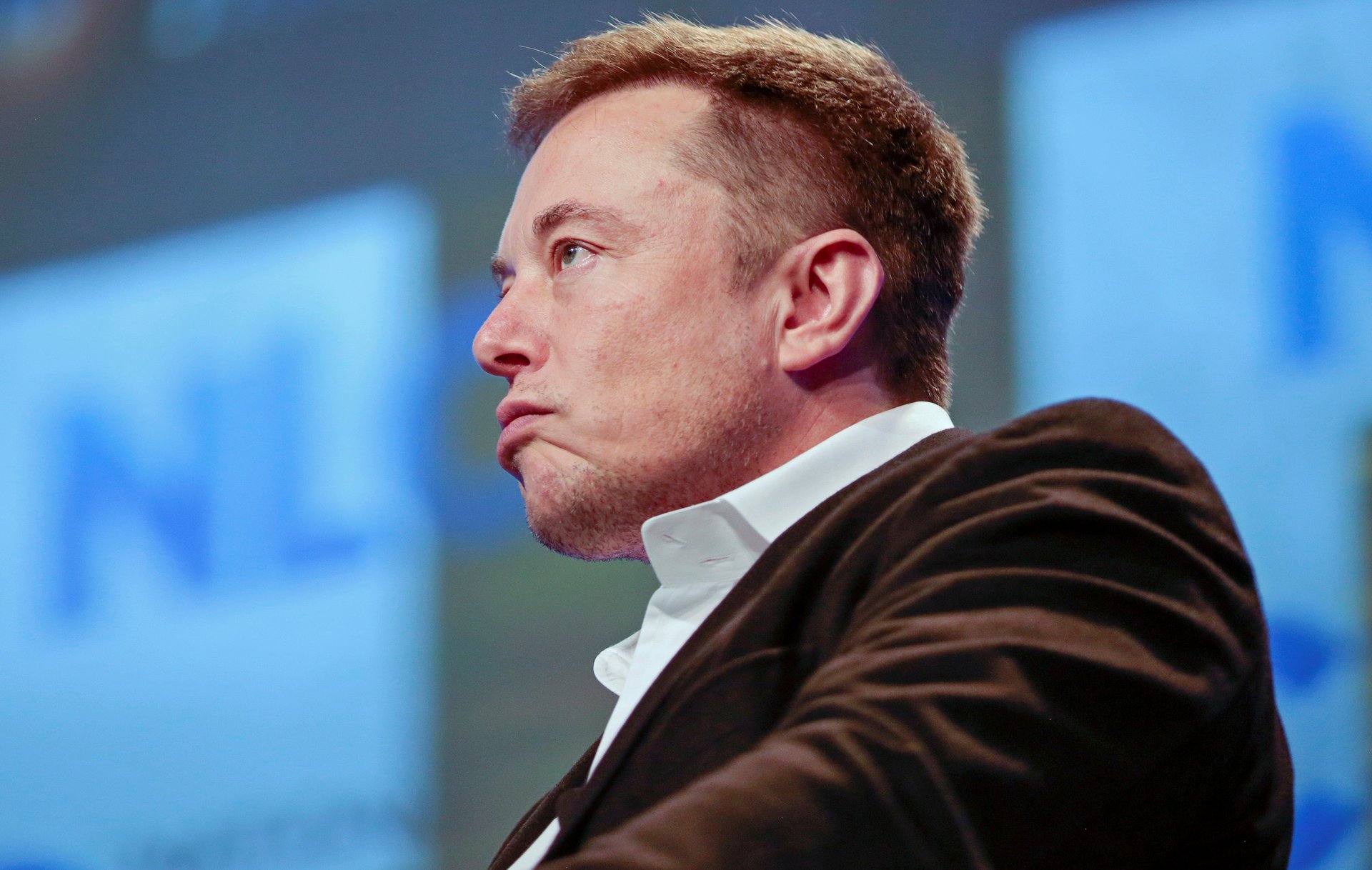Tesla’s horrible, no good, very bad week is a bad sign for its 2019 outlook
Tesla is having a rough second half of February.


Tesla is having a rough second half of February.
On Feb. 15, Amazon led a $700 million investment into Rivian, a US maker of electric pickup trucks. In a note to clients, Morgan Stanley auto-industry analyst Adam Jonas said the investment “may prove to be the most significant milestone for US autos for all of 2019.” Rivian doesn’t make sedans like Tesla, but is a competitor. Tesla CEO Elon Musk in August described an electric pickup truck as “probably my personal favorite for the next product.”
On Feb. 20, Tesla announced the departure of general counsel Dane Butswinkas after just two months on the job. It was the second high-profile departure this year after Tesla chief financial officer Deepak Ahuja in late January said he would retire sometime in 2019.
On Feb. 21, trusted reviewer Consumer Reports pulled its recommendation of the Tesla Model 3 electric sedan, citing issues with body hardware and in-car electronics, such as touchscreens freezing and rear windows cracking from the cold. A Tesla spokesperson told NBC this week that the company had addressed “the vast majority” of the issues noted by Consumer Reports, but the stock slid anyway.
On Feb. 22, Mike Jackson, outgoing CEO of auto retailer AutoNation, and a longtime Tesla critic, went on CNBC and pilloried Musk for hyping the company’s self-driving efforts in an “almost unethical way.”
Tesla, asked about the negative developments of the past week or so, pointed to Model 3 deliveries beginning ahead of schedule in China, an event the company sponsored to introduce girls to engineering, and a new feature called “dog mode,” as examples of good things happening recently. Tesla stock is down 11% so far this year.
Other recent signs that Tesla could be facing a tough year were more subtle. In its 2018 annual report shared Feb. 19, Tesla described itself as the “world’s first vertically integrated sustainable energy company.” Sounds good, right? Except, in the previous two years’ annual reports, Tesla used the word “only” instead of “first,” leading you to wonder if competitors are catching up.
When asked about the use of “first” instead of “only” in the 2018 annual report, a Tesla spokesman declined to comment on the record, except to note that Tesla had previously used the word “first” instead of “only” in describing itself in a note to investors from March 2018.
Tesla also noted in its 2018 annual report that it may “face difficulties meeting our sales and delivery goals in both existing markets as well as new markets,” and that missed targets “could result in negative publicity and damage to our brand and have a material adverse effect on our business.”
It’s an inauspicious start to a year that promises to be challenging for Tesla, as it aims to hit an annualized production rate of half a million cars, or about 10,000 a week. Tesla was still struggling to hit its Model 3 production goals consistently last year. The federal income tax credit for US Tesla buyers is also now shrinking, since the the company triggered a phase-out period for the credit when it delivered its 200,000th eligible electric car last year.
Even Tesla’s most devout followers only have so much patience. Some customers are reportedly clamoring to get their $1,000 deposits back after losing faith in their orders ever being fulfilled.
Correction Feb. 23, 2019: An earlier version of this article incorrectly stated that Telsa badly missed its third-quarter 2018 production goal.